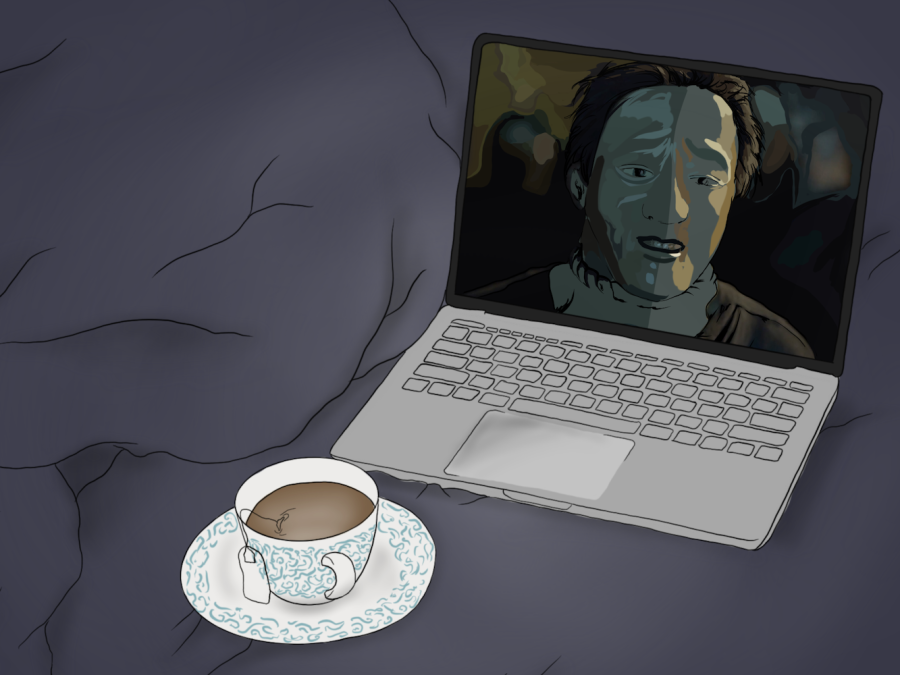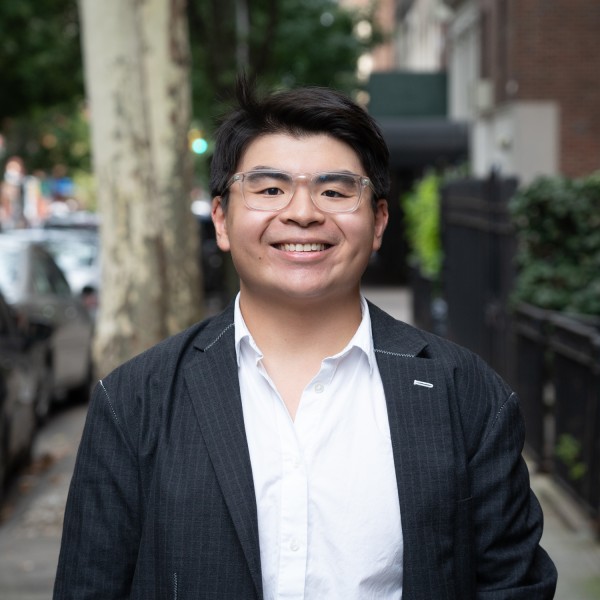Off the Radar: 6 minutes of masks and fascism in ‘The Fall’
Off the Radar is a weekly column surveying overlooked films available to students for free via NYU’s streaming partnerships. “The Fall” is available to stream on Kanopy.
(Illustration by Aaliya Luthra)
April 28, 2023
Jonathan Glazer’s short film “The Fall” depicts a spiraling descent into a macabre dimension of human barbarism and fascistic mob violence. Released in 2019, six years after his acclaimed feature “Under the Skin” (2013), the short highlights Glazer’s innovative prowess when working within the restraints of short-form media.
Having directed a series of iconic music videos in the ’90s for the likes of Radiohead and Jamiroquai, Glazer is a master of weaving inventive narratives, sounds and visuals within a limited timeframe. “The Fall” effectively distills a myriad of dark and complex political ideas into six minutes of unnerving confusion. Images of a gothic nightmare underlined by an unsettling experimental score create a cinematic experience that lingers long after the curtains close.
The film opens to a nondescript forest, where a masked and hysteric lynch mob convenes beneath a towering tree, attempting to shake their victim off the top. Members of the mob are wearing Japanese Noh-inspired masks bearing feral expressions, like a pack of mad hounds. The cowering victim, whose mask exudes a palpable sense of fear, is dragged across the forest floor and made to pose in an eerie portrait. The cell phone picture is flooded by luminescent flash, illuminating the vague yet sinister threat awaiting the faceless figure.
Inspired by a picture of Eric Trump and Donald Trump Jr. enthusiastically posing with a dead leopard in their arms, the surreal tableau is viscerally discomforting. “The Fall” does not provide precise names, dates or locations; rather, it captivates the viewer through the ominous mystique of a threat that is entirely formless. It is an ideological abstraction that draws on individual and collective fears in the contemporary political landscape. The blank masks let audiences project their own subconscious terrors onto the film itself, representing the universality of fear in an age dominated by mob mentality and mindless aggression.
“The Fall” fits right into Glazer’s small but celebrated filmography exploring the darkest recesses of the human mind. While not directly related, “The Fall” shares thematic similarities to his next film, “The Zone of Interest” (2023). In competition for the upcoming 76th Cannes Film Festival, Glazer’s long-awaited adaptation of acclaimed British novelist Martin Amis’ novel follows a Holocaust love affair set in the Auschwitz concentration camp. In an interview with The Guardian, Glazer described fear like a “fever” that takes hold of people, something that gripped Germany during the rise of Nazism and is taking root across the globe now. Glazer’s condensed diagnosis of fear and group violence in the modern age in “The Fall” is sure to be the perfect primer, and even future companion piece, to his upcoming project.
Contact Mick Gaw at [email protected].

























































































































































